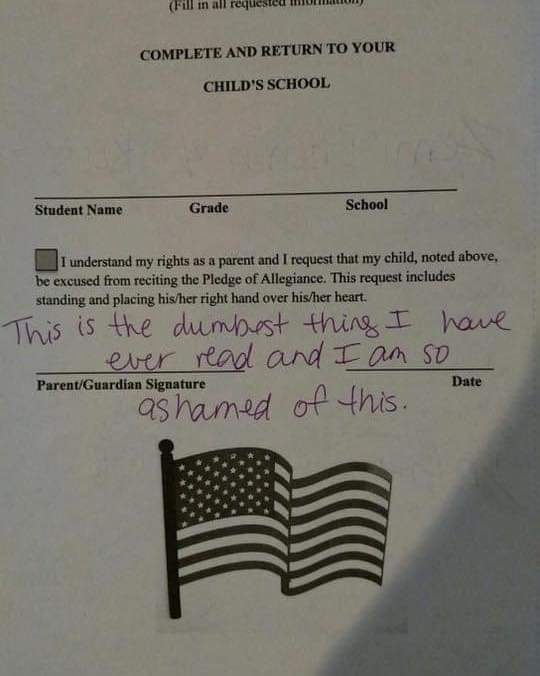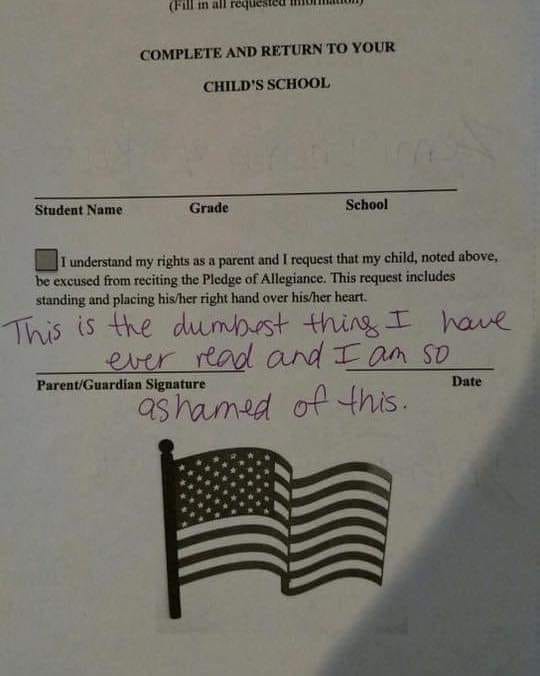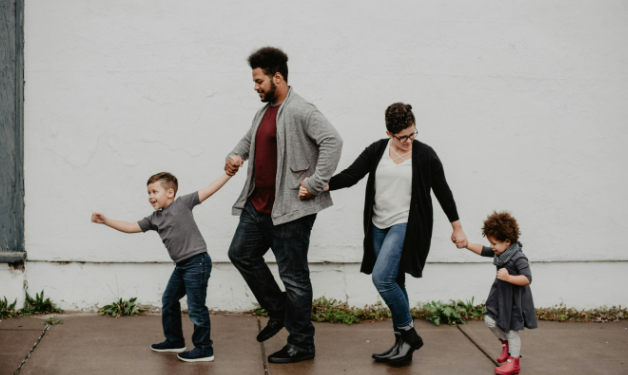HT4. “Patriotism is found in the freedom to choose, not in forced tradition.”

This image highlights an important intersection of personal freedom, belief, and patriotism. The form allows parents to decide whether their child participates in the Pledge of Allegiance, reminding us of the power of choice in a free society.
Personal freedom is a cornerstone of democracy, giving individuals the right to follow their beliefs without coercion.For many, reciting the Pledge represents love for the country and unity. But true patriotism is not about obligatory gestures; it’s about embracing the freedom that allows each person to decide how they express their loyalty.
The handwritten comment shows someone standing up for their values, which in itself is a form of patriotism—defending the principles they believe in.The moral lesson here is that respecting personal choices strengthens unity, not weakens it. Patriotism is not a one-size-fits-all concept.
It’s about upholding the freedoms that allow people to express themselves in different ways. Whether choosing to recite the Pledge or not, what matters is that the choice is grounded in belief, and respecting that freedom is a true reflection of democratic values.
This image underscores a crucial aspect of democracy—respect for individual choice and belief, particularly when it comes to symbolic acts like the Pledge of Allegiance. The form offers parents the opportunity to decide whether their child participates in the pledge, serving as a reminder that true freedom involves the right to make personal decisions without external pressure.
While for many, the Pledge is a meaningful expression of patriotism, representing national pride and unity, it’s essential to recognize that patriotism is not measured by adherence to traditions. Instead, it is defined by the principles of liberty, including the right to choose how one expresses their allegiance to their country. Forcing someone to participate in patriotic acts contradicts the very ideals of freedom and autonomy that democracies stand for.
The handwritten comment seen in the image illustrates an individual standing firm in their values, demonstrating that patriotism comes in many forms. This act of asserting personal beliefs, especially in a public or institutional setting, is a powerful reminder that true patriotism lies in defending the freedom to choose, even if that means opting out of widely practiced customs.
Ultimately, the lesson here is that respect for diverse expressions of belief strengthens the fabric of society. When people are free to make their own choices—whether to recite the Pledge or refrain from it—it reflects a deeper understanding of democracy. It’s not about enforcing uniformity, but rather about upholding the freedoms that allow individuals to express their values in ways that are authentic to them. This respect for personal freedom is, at its core, the highest form of patriotic loyalty to a free society.





